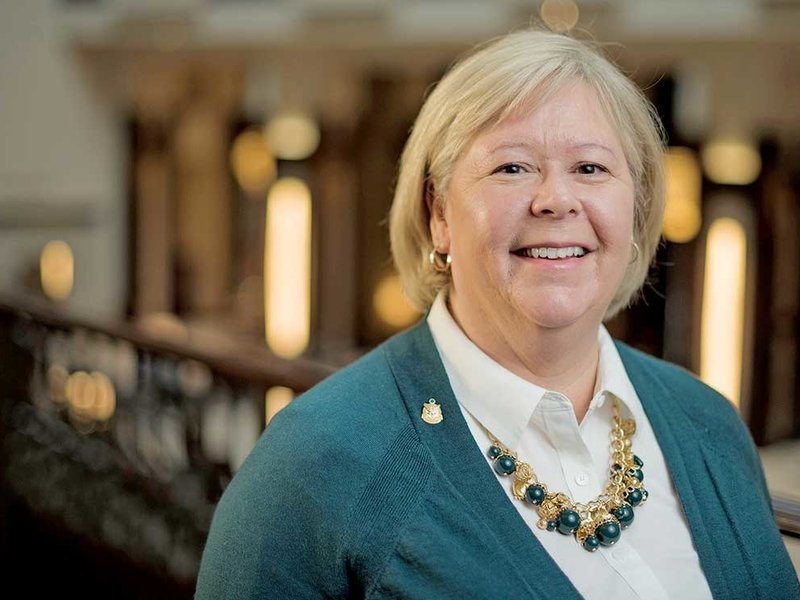
As showrooms are ordered to close and new-vehicle sales come to a crawl, a number of dealers need help navigating the massive $2.2 trillion coronavirus stimulus package signed into law March 27 by President Donald Trump.
With demand for forgivable loans expected to be high, the key question is how long will it take for their cash-flow dependent businesses to secure aid?
The CARES Act — or Coronavirus Aid, Relief and Economic Security Act — expands existing loan programs and creates programs intended to help companies maintain employment and, ultimately, save their businesses. The nearly 900-page bill offers several potential benefits, including new payroll and tax provisions to provide a short-term lifeline to companies such as dealerships as they navigate the best way forward financially.
A lack of clarity on the scope, requirements and timeline of the lending process — particularly within a new program from the Small Business Administration — has caused some dealers to scratch their heads as they consult with bankers and tax advisers while struggling to keep their employees paid and businesses afloat during an economic and public health crisis.
“My head is spinning trying to understand all of this,” said Michelle Primm, managing partner of Cascade Auto Group in Cuyahoga Falls, Ohio. “I’ve read probably four or five interpretations, and it’s all just really confusing, so I’m depending on my bank and my accounting firm to hold my hand through this.”
Dealerships in Ohio can still operate, according to a stay-at-home order from Gov. Mike DeWine. However, Cascade Auto Group has announced layoffs in all departments and is operating with about half of its staff on-site, Primm said.
“From a survival point, one of my mantras has always been, ‘Volume is vanity, profit is sanity, and cash is king,’ ” she said.
Within the CARES Act, the Paycheck Protection Program from the Small Business Administration, which authorizes up to $349 billion in forgivable loans to small businesses, is a top priority for dealers such as Primm who are seeking emergency financing.
“The biggest and quickest or best benefit for the dealers is going to fall under the Paycheck Protection Program,” said Marc Spizzirri, senior managing director of GlassRatner Advisory & Capital Group in Irvine, Calif.
The program provides small businesses — usually those with fewer than 500 employees, though there are exceptions — with forgivable loans to cover payroll costs including benefits as well as mortgage interest, rent and utilities for up to eight weeks. The eight-week period can be applied to any time frame between Feb. 15 and June 30.
The program contains a waiver provision that can work well for dealers with multiple stores, according to the National Automobile Dealers Association. Those organizations wouldn’t usually be considered small businesses.
Automotive franchisors need to register with the administration and receive a franchise identifier code to ensure their multidealership franchisees qualify for the loan programs, said Russell McRory, a partner at major dealer law firm Arent Fox.
“For businesses like car dealerships, applying for these loans is only the first step. They will also have to properly document expenditures for which they will seek loan forgiveness,” McRory said. “And when the dust settles, we can expect audits of loan and forgiveness applications.”
Automaker brands that already have franchise identifier codes include Ford, Kia, Chrysler, Subaru, Volkswagen, Nissan and Mazda. NADA has reached out to those without franchise codes, including General Motors, BMW and Toyota — most of which have advised they are applying for the codes. Further implementation guidance is needed from the administration, NADA said.
Small businesses and sole proprietorships, including dealers, can apply for the loans through any regulated lender or other federally insured institutions approved to participate.
The administration’s program is a financial leg up for dealers who want to keep their staff gainfully employed and safe, but GlassRatner’s Mike Issa, a principal at the firm, warns that the route to these forgivable loans could be a tedious process because demand is expected to be high.
“You’ve got a substantial number of businesses that are desperate to get this done, but the [Small Business Administration] has the same number of people — the same throughput capacity — that they had 30 days ago before all this happened,” Issa said. “I hope we get this in time, in dealers’ hands, to do some good as opposed to just in time to have a nice wake at a funeral.”
Janet Martin-Clark, dealer principal at Martin Chevrolet-Buick-GMC in Cleveland, Texas, said she’ll be taking advantage of the Paycheck Protection Program because of the loan forgiveness.
“But, frankly, I’m a little concerned by the sheer amount of people that’s going to be applying for these loans,” she said. “This isn’t normal. Where am I going to be in the queue? How long is this going to take?”
Chris Reeves, general manager at University Mazda in Seattle, is waiting for legal and tax advice from accountants with dealership clients, but he said the loan program will provide relief to employees and businesses that are incurring massive fixed operational expenses.
“We’ve gone to a nearly zero revenue funnel,” he said. “My service is down 75 percent. My sales business is shut down, but I still have the same fixed expenses that don’t fluctuate every month.”
Certain requirements of the process still need to be refined, with numerous instances within the crisis-oriented legislation stating the Department of Treasury “shall issue further guidance,” said Buddy Dearman, managing partner for DHG Dealerships at accounting firm Dixon Hughes Goodman.
“They pulled this bill together in a really quick amount of time, so there will be further guidance on some of the more delicate nuances in the details and some of these calculations as we go forward,” he said.
His advice for dealers in the meantime?
“Determine how much you can borrow, and borrow as much as you can borrow in accordance with the terms of the program,” he said.